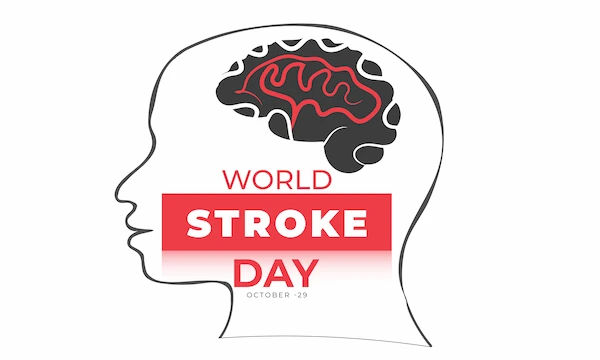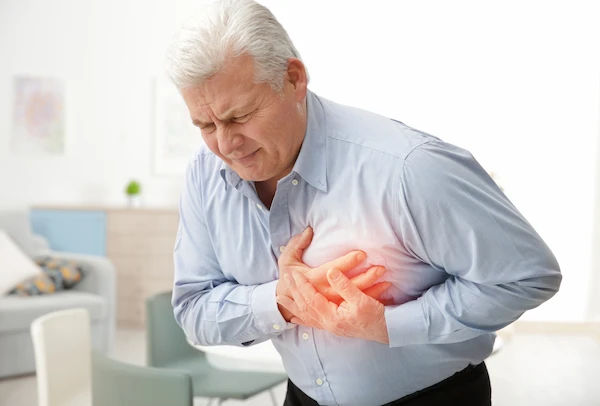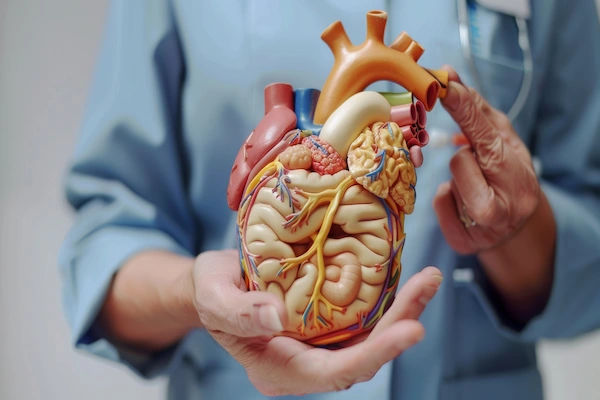- male
- 30 Years
- 22/01/2025
I'm a bit concerned because my ECG showed a short PR interval of 109. I'm not experiencing any symptoms right now, but Im worried if this could lead to any future health problems. Should I be worried about this?
Answered by 1 Apollo Doctors
Short PR interval on ECG can be a sign of an abnormal electrical pathway in the heart. This can sometimes lead to a condition called Wolff-Parkinson-White syndrome, which may increase the risk of certain heart rhythm problems. Since you have no symptoms currently, it is important to monitor your heart health regularly. In case of any symptoms like palpitations, dizziness, or fainting, you should consult a cardiologist. However, for now, no specific treatment is needed.
Dr. Anshul Suggests...
Consult a Cardiologist
Answered 04/07/2025
0
0

More Cardiology Health Queries
View allI'm wondering if mild pulmonary hypertension can be cured or if there are treatments that can prevent it from becoming more severe. Can you help with this?
yes it can be cured
Answered by 1 Apollo Doctors
I've been having this strange sensation in my chest at night, especially when I lie down flat. It sort of feels like something is squeezing or tingling inside. There isn't any pain or trouble breathing, but it does make me pretty uncomfortable. It never lasts more than an hour, and I seem to feel better if I change my sleeping position. I'm on high blood pressure medicine and recently got my kidney and thyroid functions checked, and everything was normal. I'm curious about what might be causing this. Could it be related to the medication or something else?
ecg and echo advised to the pt..
Answered by 1 Apollo Doctors
I'm really worried about my mom who's 89 and dealing with a leaky heart valve. Every couple of months, she gets shortness of breath and ends up in the hospital. Theyve given her a diuretic for the foot swelling and fluid in her lungs, but I'm really anxious to know what her life expectancy might be like with this condition at her age. Can you shed some light on this?
An echo and ecg is advised to the patient..
Answered by 1 Apollo Doctors
Disclaimer: Answers on Apollo 247 are not intended to replace your doctor advice. Always seek help of a professional doctor in case of an medical emergency or ailment.





